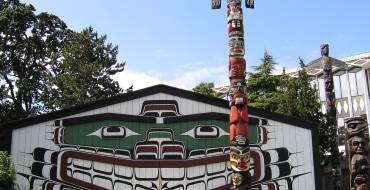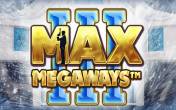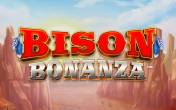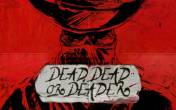
Kahnawake

Kahnawake is one of the first jurisdictions to issue gambling licenses for land-based and online casinos. The only organization that controls and licenses gambling companies is the Kahnawake Gaming Commission (KGC). It was founded in 1996 and operates under the adopted gambling law. The reputation of this regulator is quite controversial. On the one hand, it does quite well protecting the players' interests (working directly with players' complaints). On the other hand, it has had several events, namely issuing gambling licenses to unreliable companies.
Kahnawake is one of the first jurisdictions to issue gambling licenses for land-based and online casinos. The only organization that controls and licenses gambling companies is the Kahnawake Gaming Commission (KGC). It was founded in 1996 and operates under the adopted gambling law. The reputation of this regulator is quite controversial. On the one hand, it does quite well protecting the players' interests (working directly with players' complaints). On the other hand, it has had several events, namely issuing gambling licenses to unreliable companies.
Kahnawake Casinos
There are currently over 150 gambling sites operating under the Kahnawake gaming license, including vegas avtomati, goldfishka, silver sands and others. The full list of establishments can be found on the official website of the licensee in the section "AUTHORIZED CLIENT PROVIDERS LIST (BY URL)"
Kahnawake review
The Kahnawake Reservation is located in Canada, near Montreal. It is inhabited only by aboriginal people (Indians), currently approximately 10,000 according to the latest census. However, it is worth noting that an overwhelming number of Aboriginal people live off-reserve.
The aboriginal population is governed by the Mohawk Council of Kahnawá, which has 12 members and is elected every three years. The residents are very reverent about their territory, and foreigners are forbidden from residing there. To stay on the reservation for a long period, one must obtain the status of "visitor." And such a trend has developed because of many years of infringement of the rights of Indians and deprivation of their territories. For example, at its official establishment in 1680, the reservation area was 163 square kilometers, but at the end of 1990, the area was reduced to 43 square kilometers. This is why the "no non-indigenous residency" law was passed.
Because of the small area and the lack of earning opportunities, it was decided to make Kanawake the place to license the gambling industry. To accomplish this, the "Kahnawake Gaming Act" was developed. And in 1996, they created the Kahnawake Gaming Commission.
The jurisdiction can license online gambling as well as land-based casinos. Note that this jurisdiction's reputation is quite good regarding player protection and license control. Although at the beginning of its activities, there were several unpleasant incidents. In general, it is a question of the superficial attitude to the license issuance, which led to the fact that there were quite dubious online casinos with a license in Kahnawake. In recent years, the Kahnawake Gaming Commission has become more serious about its responsibilities, but it has lost many licensees. That being said, a Kahnawake license is usually a sign of a fairly reputable casino.
The jurisdiction is attractive for companies wishing to operate a gambling business because of the lower fees and tax requirements compared to other licensing jurisdictions. If you decide to license a gambling business in this jurisdiction, you will need one or more of five licenses:
- The Interactive Gaming Licence is a virtually unavailable license issued to a single hosting center in 1999: Mohawk Internet Technologies, located in Kahnawake.
- For Providers (Client Provider Authorization) - issued to organizations that wish to provide interactive gaming services from a hosting facility in Kahnawake. The license holder can offer casino, poker, and sports betting interactive gaming.
- Facility Hosting (Inter-Jurisdictional Authorization) - Issued to a company that holds a valid internet gambling license issued in another jurisdiction. This license type allows some or all of its equipment or personnel to be located in Kahnawake.
- Key Person License - Issued to at least one person who performs management or operational functions for a company that has obtained a Client Provider Authorization license.
- Casino Software Provider Authorization (Casino Software Provider Authorization) - the holder of this license is authorized to host and use interactive software owned and operated by the holders of a valid gaming license. As well as to license casino software to a third-party online gaming operator for use on the website.
Gambling history in this country
Seeing the potential in the development of gambling in Kanawha, the Gaming Commission was founded in 1996. Of course, before this, the legal framework was established. The issuing of licenses began in 1999 when the basic principles and rules of the organization were formed. In May 2008, a nasty incident occurred with one of the licensed operators.
Ultimate Bet released a statement in which it confirmed that cheating had indeed occurred between March 2006 and December 2007. A subsequent investigation revealed that the cheating had been going on since 2004 and had cost players millions of dollars. The commission fined the company 1.5 million dollars and allowed them to continue operating, causing a massive exodus of players from the site.
Licensing authority
The Kahnawake Gaming Commission has a supervisory and controlling function over gambling based on the licenses issued. It was established in 1996 under the "Kahnawake Gambling Act."
The regulator has developed many rules to make its operations transparent and ensure reliability. The rules are designed to ensure that all interactive gaming and gambling activities conducted within or from the Mohawk Kahnawake territory satisfy several basic principles, namely:
- Provide a legal framework to regulate and control interactive gaming based on or offered within the Mohawk Kahnawake Territory;
- Ensure that interactive gaming is conducted responsibly and fairly
- Prevent interactive gaming from being linked in any way to crime
- Ensure that online casino operators treat players fairly; Payouts of winnings should be made as quickly as possible. All users' personal information shall be kept in the strictest confidence.
- Protect persons under the age of eighteen and other vulnerable persons.
The Commission's primary function is to protect players who choose to participate in online games offered by licensees issued by the Commission. And it is not only about protecting the customers of the establishment in terms of payment of winnings but also protecting them from gambling addiction and personal information.
To fulfill this condition, there are special rules that must be complied with by the owners of gambling establishments. For example:
- Gambling sites must provide a mechanism for a player to limit his or her play, including setting deposit limits.
- A player's family and close relatives of the player can petition the Commission to prohibit the casino from accepting deposits from that player. In turn, the regulator will issue an order prohibiting gaming sites from accepting wagers or deposits from that player;
- Gaming sites must take adequate measures to protect the privacy of player information; Rules of Play must be published in English and any other such language as may be appropriate.
The Commission's regulations also provide for some dispute resolution mechanisms to address player complaints, including the possibility of arbitration. In fact, the Commission has a full-time dispute resolution officer to ensure that all player complaints are addressed promptly.
When filing a complaint, certain conditions must be met, or it will not be accepted:
- If your complaint has been previously adjudicated, it is not subject to review
- Your complaint is pending in another jurisdiction
- Your complaint has already been adjudicated in another jurisdiction
- Your complaint has been discussed in any public forum;
- You have shared information with the media.
According to Casinoz, a number of requirements are quite controversial and incorrect, but it is a condition of the regulator. However, there is a positive aspect: If a player files a timely complaint with the Commission, the regulator requires the respective operator to respond within seven days. If the casino fails to respond to the complaint promptly or not at all, then the Commission can automatically and promptly decide in favor of the player and fine the casino accordingly.
In general, the Kahnawake Gaming Commission is a demanding organization that carefully protects players. The regulator's standards of work and basic principles are also quite high and in line with international licensing standards. The regulator also cooperates with many well-known independent gambling organizations and laboratories testing software for the gambling industry, such as BMM Testlabs, Quinel, eCOGRA, iTech Labs, and Gaming Associates.
Requirements for licensees
When obtaining a gambling license, a lot of documentation will need to be filled out. The company will also be checked quite thoroughly for links with other gambling companies, and its overall reliability will be assessed.
- Application.
- The information form is filled out by the owner of the company. This form contains legal information about the company.
- Personal Information Form. To be completed by any company member who owns at least 10% of the shares, or has control or management of the company.
- The Key Person License Application Form must be completed by each applicant.
- Presentation of Management System. Annual reports prepared by the company. for the last three years.
These application forms are generally suitable for any gaming license. The company pays about $40,000 for the application and expenses. On average, the licensing process takes about a month.
One of the rules that the jurisdiction has is that they require the operator's sites to be hosted by Mohawk Internet Technologies, which is within their physical jurisdiction.
After receiving the license, the operator must pay an annual fee of $5,000.
Conclusion
The Kahnawake jurisdiction is a favorable place to run a healing-related internet business, primarily due to its low cost. But if there is a question of "license prestige," Casinoz would recommend considering other jurisdictions. We can't ignore the fact that the Kahnawake Gaming Commission has developed and is also quite good at handling player complaints.
Frequently asked Questions
Kahnawake is a Mohawk Indian reservation located on the south bank of the St. Lawrence River, about 10 km from Montreal, in the province of Quebec, Canada. The population is about 8,000 people. The reservation has a special legal status and a degree of autonomy.
Gambling is regulated by the Kahnawake Gaming Commission (KGC). It is an official body created by the Kahnawake Mohawk Council to oversee gambling activities in and out of Kahnawake's jurisdiction.
The Commission was created in 1996 when the Kanawake Mohawk Council passed the Kahnawake Gaming Act. The first regulations for interactive gaming were introduced in 1999.
The commission regulates various forms of gambling, including:
land-based casinos on the reservation,
online casinos,
poker rooms,
sports betting,
lotteries,
bingo.
Yes, KGC issues several types of licenses for online gambling operators:
Interactive Gaming License (IGL),
Interactive Gaming Client License (IGCL),
Key Person License (KPL),
Gaming Equipment License (GEL).
The status of Kahnawake's licenses in other jurisdictions is ambiguous.
Some countries do not officially recognize these licenses.
Many operators use them because of their relatively low cost and ease of obtaining them.
In some cases, there have been legal disputes over the legitimacy of these licenses.
The EU does not include Kahnawake in its "white list" of regulators.
The basic requirements include:
financial stability and transparency of the operator
fairness and randomness of games (verified by independent auditors);
measures to protect players (including combating addiction);
compliance with anti-money laundering and anti-terrorist financing laws;
technical security and protection of players' data;
regular inspections and audits.
Relatively low cost of license;
fast process of obtaining a license;
ability to operate in many international markets;
reputation of a reliable regulator with a long history.
Regular inspections and audits of licensees, Investigation of player complaints, Possibility of fines or license revocation, cooperation with other regulators and law enforcement agencies.
| Main info | |
| License types | Interactive Gaming License (IGC) , Client Provider Authorizatio , Inter-Jurisdictional Authorization , Key Persons Licence , Casino Software Provider Authorization |
| Licensing Authority | Kahnawake Gaming Commission |
| Name | Kahnawake |
| Site languages | English |
| Website | http://www.gamingcommission.ca/ |
| Contacts | |
| 🏠 Post address | P.O. Box 1799, Route 138, Kahnawake Mohawk Territory, Quebec, J0L 1B0, Canada |

















